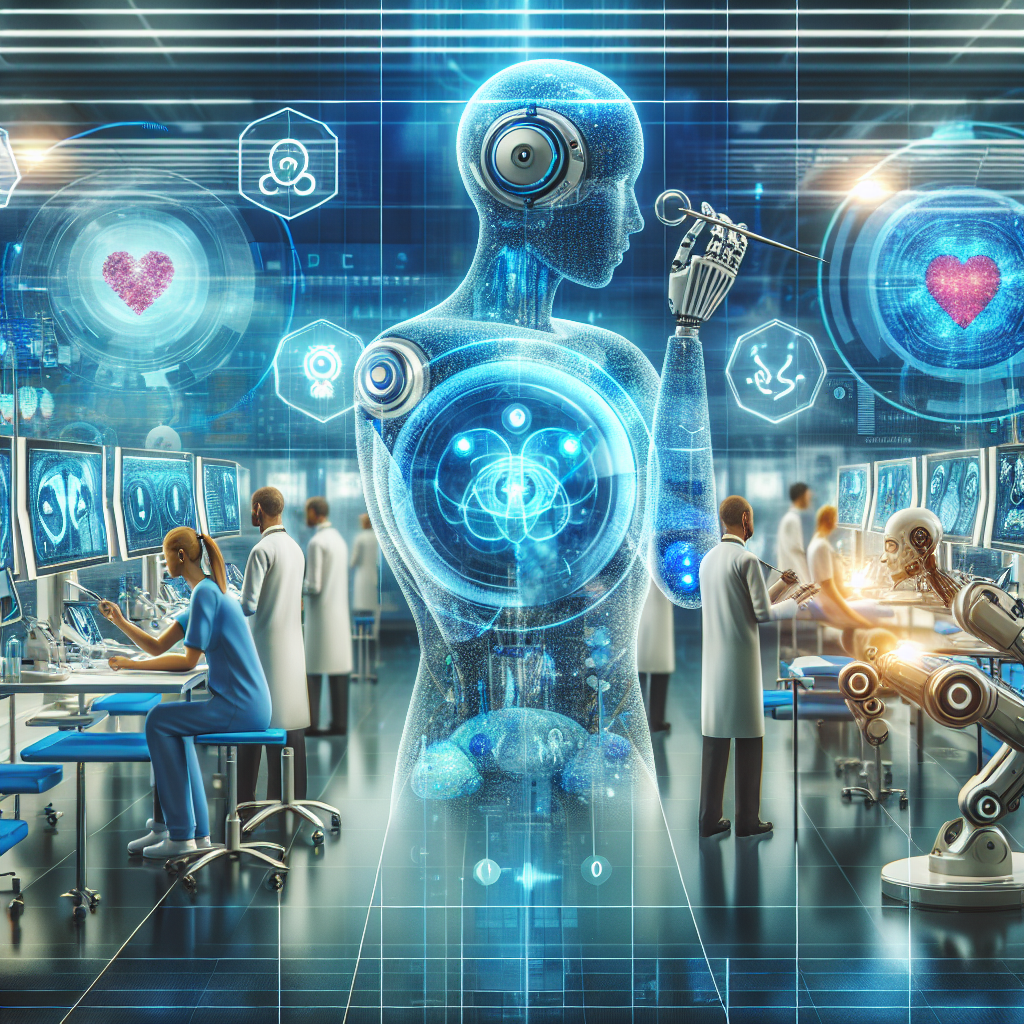Artificial General Intelligence (AGI) is rapidly transforming various industries, and healthcare is no exception. AGI has the potential to revolutionize the medical industry by improving patient care, streamlining administrative tasks, and advancing medical research. In this article, we will explore the impact of AGI on healthcare and how it is changing the way healthcare is delivered.
AGI in Healthcare: Improving Patient Care
One of the most significant ways AGI is revolutionizing the medical industry is by improving patient care. AGI-powered systems can analyze vast amounts of data to help healthcare providers make more accurate diagnoses and develop personalized treatment plans for patients. This can lead to better health outcomes and a higher quality of care for patients.
For example, AGI can be used to analyze medical images such as X-rays, MRIs, and CT scans to detect abnormalities and assist radiologists in making more accurate diagnoses. AGI-powered systems can also analyze patient data, such as medical histories, genetic information, and lifestyle factors, to identify patterns and trends that can help healthcare providers develop personalized treatment plans for patients.
AGI can also improve patient care by helping healthcare providers identify patients at risk of developing certain conditions or complications. By analyzing patient data and predicting future health outcomes, AGI-powered systems can help healthcare providers intervene early and prevent or manage health issues before they become more serious.
AGI in Healthcare: Streamlining Administrative Tasks
In addition to improving patient care, AGI is also revolutionizing the medical industry by streamlining administrative tasks. AGI-powered systems can automate routine administrative tasks such as scheduling appointments, processing insurance claims, and managing electronic health records. This can help healthcare providers save time and resources, allowing them to focus more on patient care.
For example, AGI-powered chatbots can be used to assist patients with scheduling appointments, answering common questions, and providing information about medical conditions and treatments. This can help reduce the workload of administrative staff and improve the overall patient experience.
AGI-powered systems can also help healthcare providers streamline billing processes by automating the coding and billing of medical services. This can help reduce errors and ensure that healthcare providers are properly reimbursed for the care they provide.
AGI in Healthcare: Advancing Medical Research
Another way AGI is revolutionizing the medical industry is by advancing medical research. AGI-powered systems can analyze large datasets of medical research and clinical trials to identify patterns and trends that can help researchers develop new treatments and therapies for various medical conditions.
For example, AGI can be used to analyze genomic data to identify genetic markers associated with certain diseases and conditions. This information can help researchers develop personalized treatments and targeted therapies for patients based on their individual genetic makeup.
AGI-powered systems can also be used to analyze medical literature and research studies to identify new drug targets, treatment approaches, and diagnostic tools. This can help accelerate the pace of medical research and lead to the development of new treatments and cures for a wide range of medical conditions.
FAQs
Q: What is AGI?
A: AGI, or Artificial General Intelligence, refers to a type of artificial intelligence that is able to perform any intellectual task that a human can do. AGI is different from narrow AI, which is designed to perform specific tasks or functions.
Q: How is AGI used in healthcare?
A: AGI is used in healthcare to improve patient care, streamline administrative tasks, and advance medical research. AGI-powered systems can analyze medical data to help healthcare providers make more accurate diagnoses, develop personalized treatment plans for patients, automate routine administrative tasks, and identify new treatments and therapies for medical conditions.
Q: What are some examples of AGI in healthcare?
A: Some examples of AGI in healthcare include using AI-powered systems to analyze medical images, such as X-rays and MRIs, to assist radiologists in making more accurate diagnoses. AGI can also be used to analyze patient data to identify patterns and trends that can help healthcare providers develop personalized treatment plans for patients.
Q: What are the benefits of using AGI in healthcare?
A: The benefits of using AGI in healthcare include improving patient care, streamlining administrative tasks, and advancing medical research. AGI can help healthcare providers make more accurate diagnoses, develop personalized treatment plans for patients, automate routine administrative tasks, and identify new treatments and therapies for medical conditions.
In conclusion, AGI is revolutionizing the medical industry by improving patient care, streamlining administrative tasks, and advancing medical research. As AGI continues to evolve and become more sophisticated, it has the potential to transform the way healthcare is delivered and improve health outcomes for patients around the world.

